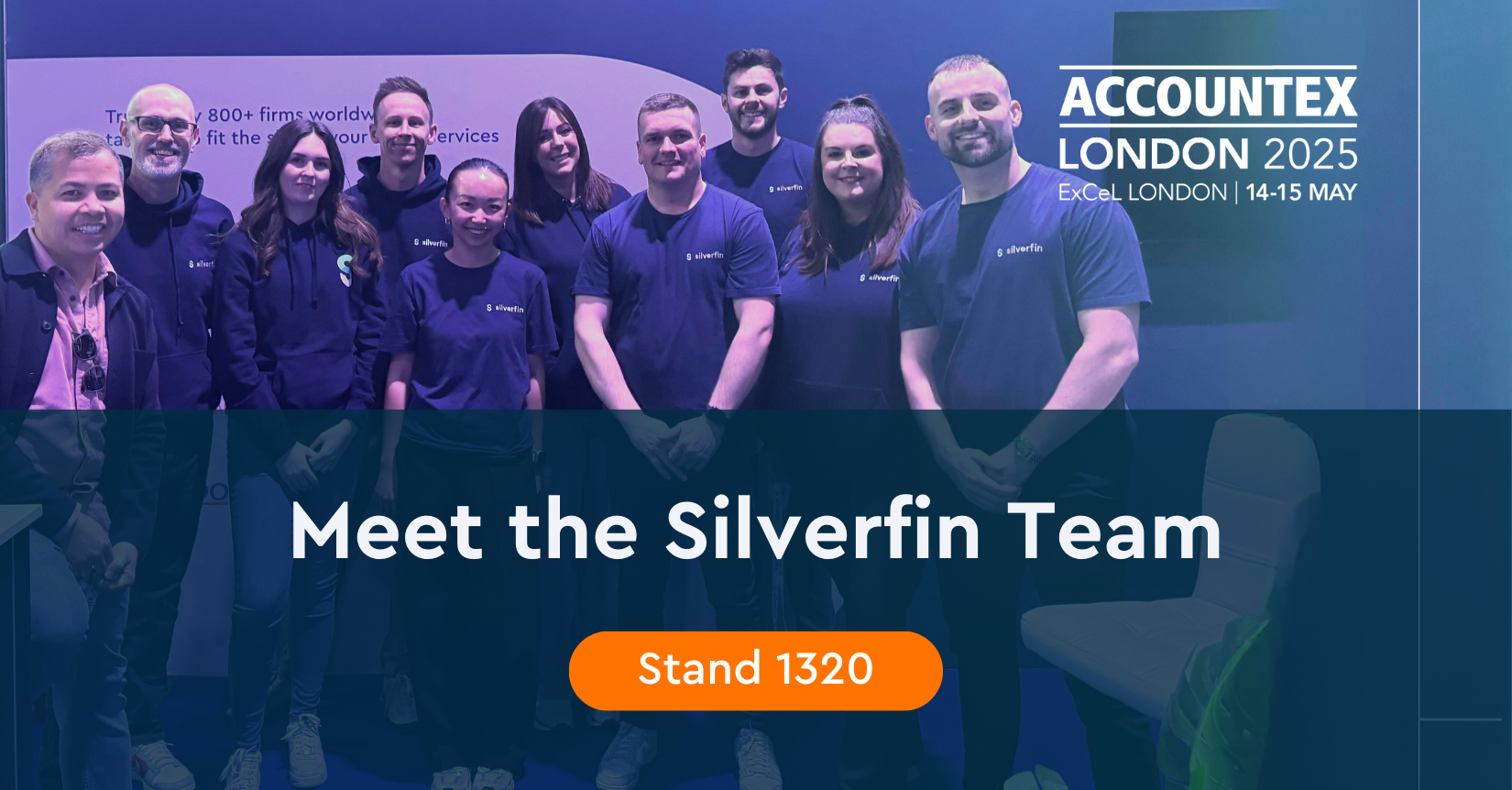Artificial intelligence isn’t replacing accountants; it’s redefining what’s possible for them.
The future of accounting will belong to those who embrace technology as a catalyst for the evolution of their profession and personal capacity. The next generation of accountants will spend less time corralling data and more time developing strategy, powered by human insight and intelligent automation.
It’s important to note that the role of accountants will not be diminished by technological innovation; it will be elevated by it. AI and automation remove the burden of low-skilled, repetitive tasks, leaving professionals to focus on interpretation, advisory, and decision-making. The key is balance: implementing human-first AI that supports rather than supplants. Silverfin’s platform helps firms achieve exactly that — embedding explainable AI and standardised digital workflows that free up capacity for higher-value work.
The shift underway – what’s changing in accounting roles?
Accounting, like so many other professions, is entering a new phase which will be defined by adaptability, not survival.
The question is no longer “How do we future-proof?” but “How do we digitally prepare to adapt?”
Across the UK and Europe, Tier 1 and 2 firms are realising that digital competitiveness depends on operational resilience and scalability. As regulatory expectations tighten and client demands grow more complex, firms must evolve from static compliance providers to agile advisory businesses, the sign of a future-proof accounting firm.
This transformation is visible in everyday roles:
- Compliance professionals are becoming data interpreters and process optimisers.
- Audit teams are learning to leverage real-time analytics instead of sampling after the fact.
- Partners and Chief Operating Officers are shifting focus from billable hours to platform-enabled efficiency and insight.
Silverfin’s Digital Transformation Scale provides a roadmap for the digital transformation journey. It helps firms align their people, data, and workflows to achieve sustainable, long-term growth.
Why digital maturity matters more than ever
Digital maturity requires more than having the latest and most relevant technology; it’s about ensuring that technology is used effectively. A digitally mature firm has connected systems, standardised data, and repeatable workflows that deliver consistency and control.
Firms at higher levels of digital maturity consistently report:
- Faster, more reliable workflows that reduce manual errors.
- Stronger client relationships built on real-time data and transparency.
- More capacity for strategic and advisory work.
- A scalable operational model that supports growth and acquisition.
Silverfin’s digital maturity framework helps firms benchmark where they are and define what comes next, whether that’s standardising data flows, automating recurring processes, or embedding AI into reporting cycles.
Being “future-ready” isn’t about predicting the next disruption. It’s about creating a structure that can flex, scale, and adapt no matter what comes next.
Read more: Silverfin Overview
The role of tech adoption in strategic growth
Accounting tech adoption is rapidly becoming a defining indicator of performance.
Companies that are forging ahead tend to use connected cloud platforms not just to work faster, but to work smarter.
These platforms integrate working papers, accounts production, and advisory insights into one collaborative environment, uniting data, processes, and teams. This reduces the friction between compliance and advisory work, ensuring that every engagement builds toward a bigger strategic goal.
The focus of future-ready accounting technology adoption is the transformation of how work gets done, and accounting teams that employ integrated solutions enjoy quantifiable advantages:
- Unified data flow across clients and offices.
- Automated workflows that reduce admin.
- Consistent quality standards across teams.
- Clearer visibility for partners and regulators alike.
Read more: Working Papers, Accounts Production
Automation and standardisation: the M&A advantage
If properly employed, automation and standardisation can add a vital boost to enterprise value.
For companies considering merger or acquisition opportunities, having clean, consistent data and repeatable processes is a strategic advantage.
Standardised workflows enable firms to:
- Integrate seamlessly after a merger.
- Present accurate, comparable financial data for due diligence.
- Reduce operational risk through consistent methodologies.
- Improve margins and valuation multiples through automation-driven scalability.
In the M&A landscape, firms powered by the cloud have a distinct advantage.
By centralising data, automating reconciliations, and unifying reporting templates, they present a single version of truth. There’s a level of operational readiness that’s increasingly non-negotiable in so many high-value transactions.
As one Silverfin partner put it: “Automation doesn’t just make us more efficient; it makes us more attractive to the right buyer.”
Read more: Silverfin Insights
Embracing AI without losing control
During this time of change, the firms that treat AI as a partner, not a substitute for skills and processes, will have a competitive edge.
AI has the ability to analyse vast datasets and surface insights instantly, but it’s the accountant who interprets them, validates the context and communicates decisions with empathy and understanding.
Silverfin’s approach to “AI that follows your lead” ensures that control stays with the human expert. The platform’s explainable AI capabilities enhance decision-making while preserving transparency, trust, and auditability, essential in regulated environments.
AI supports accountants in areas such as:
- Flagging anomalies in real time.
- Suggesting journal adjustments or reconciliation checks.
- Identifying opportunities for advisory services.
- Highlighting trends across client portfolios.
By integrating AI into standard workflows, Silverfin helps firms move from reactive to proactive, knowing that every AI-driven insight is explainable and reviewable.
Building a firm that’s ready for the future – what to do now
Digital competitiveness doesn’t come from one big transformation project. It’s the result of consistent, strategic steps, small shifts that build momentum over time.
Here’s where to start:
- Audit your digital readiness. Map where your firm stands today in terms of systems, data, and processes.
- Prioritise standardisation. Consistency builds control and sets the foundation for automation.
- Invest in scalable platforms. Choose technologies that integrate, not isolate.
- Upskill your teams. Develop comfort with data analytics, automation, and AI tools.
- Adopt a growth mindset. View technology as a way to create opportunity, not a replacement for standard processes.
Every firm’s journey to accounting digital readiness is unique, but the destination is the same: a more agile, efficient, and insight-driven practice that creates long-term value.
Read more: Silverfin Overview
Ready to stay ahead of the curve?
Silverfin helps accounting firms achieve sustainable growth through accounting innovation, including intelligent automation, standardisation, and human-first AI. Discover how to future-proof an accounting firm by becoming digitally mature, strategically scalable, and ready for the future.













